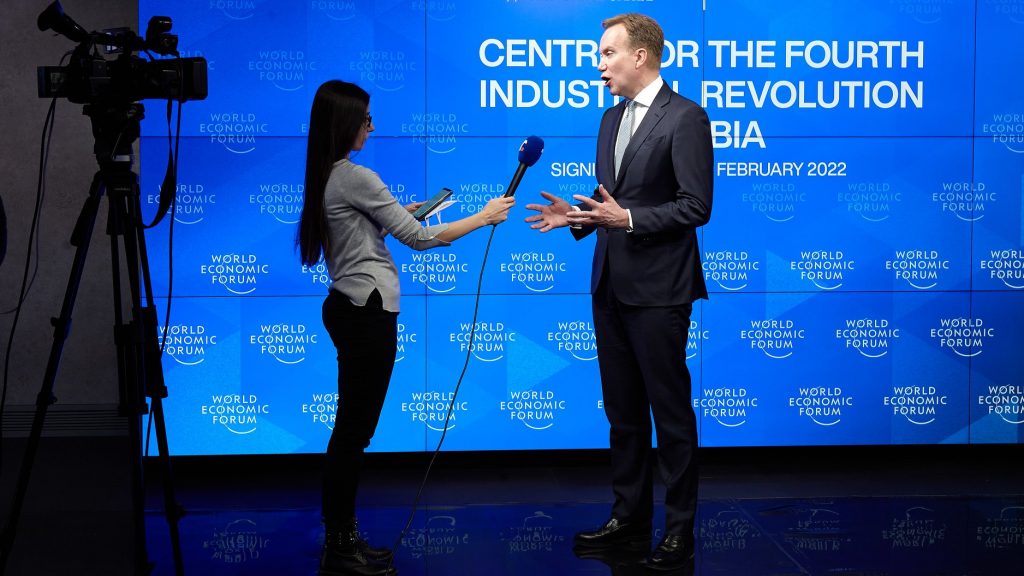In a move that signals a major leap forward in generative AI, OpenAI has quietly rolled out ChatGPT-5, its most advanced model to date….
Rwanda is first African country to join the WEF C4IR network

The Ministry of Information Communication Technology and Innovation of Rwanda, in partnership with the World Economic Forum, launched the Centre for the Fourth Industrial Revolution (C4IR) in Rwanda.
These centres shape new policies and technology governance strategies to enable agility through a fast-growing network. Rwanda’s C4IR will be focused on data governance, artificial intelligence and machine learning.
C4IR Rwanda is the first centre in Africa and joins a network of 15 centres that spans four continents.
WEF has established this global network as a platform for multistakeholder collaboration bringing together public and private sectors to maximise technological benefits to society while minimising the risks associated with 4IR technologies.
C4IR has played a leading role in developing Rwanda’s landmark data protection and privacy legislation and co-designing its national AI policy. There are currently several pilot projects being conducted with the private sector on AI application in healthcare to examine how solutions can be scaled and governed responsibly.
“The launch of this centre is enabled by investments that we, as a country, have been making in science and technology,” said President of Rwanda Paul Kagame at the centre’s opening ceremony.
“I hope the centre will build on this by making the Fourth Industrial Revolution an equalising force and contributing solutions to some of today’s most pressing challenges. We are very happy to have the World Economic Forum as a partner in this crucial and other endeavours.”
Rwanda will work with stakeholders around the world to design and pilot new approaches to technology governance in the country to help foster innovation inclusively and responsibly.
C4IR Rwanda will also address governance gaps on the ethical adoption of artificial intelligence.
“Building on Rwanda’s track record of reimagining regulation for emerging technologies, C4IR Rwanda plays a critical role in responsibly accelerating technological adoption,” said Crystal Rugege, Managing Director of C4IR Rwanda.
“We will use the centre as a catalyst for Africa to lead the world in shaping a more inclusive Fourth Industrial Revolution that addresses our unique challenges and unlocks more equitable opportunities for innovation and growth that deliver societal impact.”
An existing example of the WEF collaboration in Rwanda is the integration of the Chatbots RESET framework. Global healthcare company Babylon leads the country’s pilot project and has adopted the framework to handle over 4 000 daily medical consultations through its call centres.
This allows nurses to work more efficiently and make quicker decisions for their patients by asking the right questions, collecting necessary information about a patient’s symptoms, and providing them with insights to help choose the correct triage path. Integrating AI-powered triage tools into this service has been a critical step in digitising the national healthcare system.
“I have no doubt that the centre will herald a new era for Rwanda and the continent. Innovation and entrepreneurship are key in heralding the Fourth Industrial Revolution,” said WEF founder and Executive Chairman Klaus Schwab.
“The work of our 4IR Centres has always been important, but in this time of great global upheaval it is more crucial than ever to build together a better future and use technology to do so.”
WEF President Børge Brende praised Rwandan leadership in a keynote address at the opening ceremony.
“It says a lot about the leadership in the country when it comes to leapfrogging and being visionary when it comes to new technologies. I think that this Centre for the Fourth Industrial Revolution Rwanda will play an important role to meet the ratio of Rwanda becoming an upper middle-income country by 2035. The centre, I hope, will be a key enabler of Rwanda’s goal of becoming an even more prosperous society.”


